Choosing the countertop material in a remodeling project can be one of the more confusing choices, as well as one that has a significant visual impact on the space that you’re remodeling. There are so many choices and it can be very difficult to differentiate between all the varied products that are out there.
We put together this guide to help you understand some of the main countertop materials that you’ll see in your selection materials, as well as a handy flow chart to help you choose appropriately, based on your needs and priorities:
There are four main things that most people focus on to narrow the choices down by:
- Appearance
- Maintenance
- Durability
- Price
Every material has a different combination of these. Here is a breakdown of the cost, pros, and cons of our most used materials:
Granite
$35-100/sf installed
Pros: Pretty, natural stone surface. There is a lot of variety in the types out there, many color ranges, and every piece is unique.
Cons: Granite needs to be resealed every once in a while, it’s very heavy, and depending on the slab you select it can have seams.
Marble
$40-100/sf installed
Pros: Timeless, elegant, and beautiful. By nature, it is hot/cold resistant and is often used in kitchens where there is a lot of baking done because of it’s relationship to temperature.
Cons: Marble stains very easily, needs to be maintained, and scratches and chips easily.
Engineered Quartz
$40-90/sf installed
Pros: Engineered quartz generally doesn’t require upkeep, and is incredibly durable compared to other stone surfaces. There are a lot of different colors and ranges, and some are very close to natural looks, however it can also appear very artificial. It’s very hard to scratch.
Cons: Some people don’t like the way engineered quartz looks, and it can be considered expensive depending on what kind it is.
Soapstone
$70-100/sf installed
Pros: Soapstone has a very distinct look to it, and some people are very drawn to the natural material. It’s pretty, and it wears over time with what you’d consider a patina. It’s a harder surface than some other options.
Cons: It needs to be polished with oil, and some people consider it a drawback that it holds stains and marks (others consider it character). It does nick, and can crack.
Concrete
$75-125/sf installed
Pros: Concrete is a very versatile material. It has many different finishes and colors, and can be molded into virtually any shape, making it one of the most versatile materials to use for counters. It has a lot of character to it’s appearance.
Cons: Concrete is porous and holds stains as well as bacteria. It has the potential to crack, and is very heavy. Every counter is custom, making them more expensive than other options.
Stainless Steel
$65-125/sf installed
Pros: Super durable, stainless steel counters are practically indestructible. They scratch with a lot of effort, and the only way to destroy them is to dent them or chemically etch them. They’re also heat resistant and bacteria resistant. You often see them in commercial kitchens.
Cons: Stainless steel counters show fingerprints, can dent, can be noisy, and are typically on the expensive side due to their custom nature.
Butcher Block
$35-70/sf installed
Pros: Butcher Block counters are visually appealing, and often bring a level of warmth to a space that can become more clinical in feel. They’re a natural surface, and they’re reasonably priced.
Cons: Scratches can occur easily, but can be sanded down. Butcher block counters need extensive maintenance to stay beautiful, and they harbor bacteria easily.
Solid Surface
$35-100/sf installed
Pros: No maintenance required on these babies, they’re easy to fix, and they’re seamless. In addition, you can get them in bright colors, which can be fun in more modern designs. For the product, they’re typically relatively inexpensive compared to their stone counterparts.
Cons: They feel artificial, and can be perceived of as cheap. They also burn/melt and scratch, although minor imperfections can be buffed out.
Laminate
$10-30/sf installed
Pros: Very inexpensive, may color options. Typically the most “affordable” option that doesn’t require a lot of maintenance. Light weight, can go on cheaper cabinets.
Cons: Laminates are not very durable, and when the get scratched, burned, or stained it is difficult to repair them. Moisture can de-laminate the covering as well, and it cannot be used with an undermount sink because of this.
Tile
$10-80/sf installed
Pros: Super cheap, can be a DIY option. It also offers modular replacement, should a tile chip or scratch. There are some beautiful tiles out there.
Cons: Uneven preparation surface, and grout is not a preferred sanitary surface. It stains, harbors bacteria, and needs to be resealed often to appear clean.
Are you expecting a new addition to your family? Do you think you’re running out of space? Give us a call about our major kitchen remodels now!
Check us out and follow our Pinterest board on countertops:
Follow New England Design and Construction’s board Countertops on Pinterest.
Explore countertop inspiration now!
Look for some unique countertop materials!
for more decorating and home improvement tips!
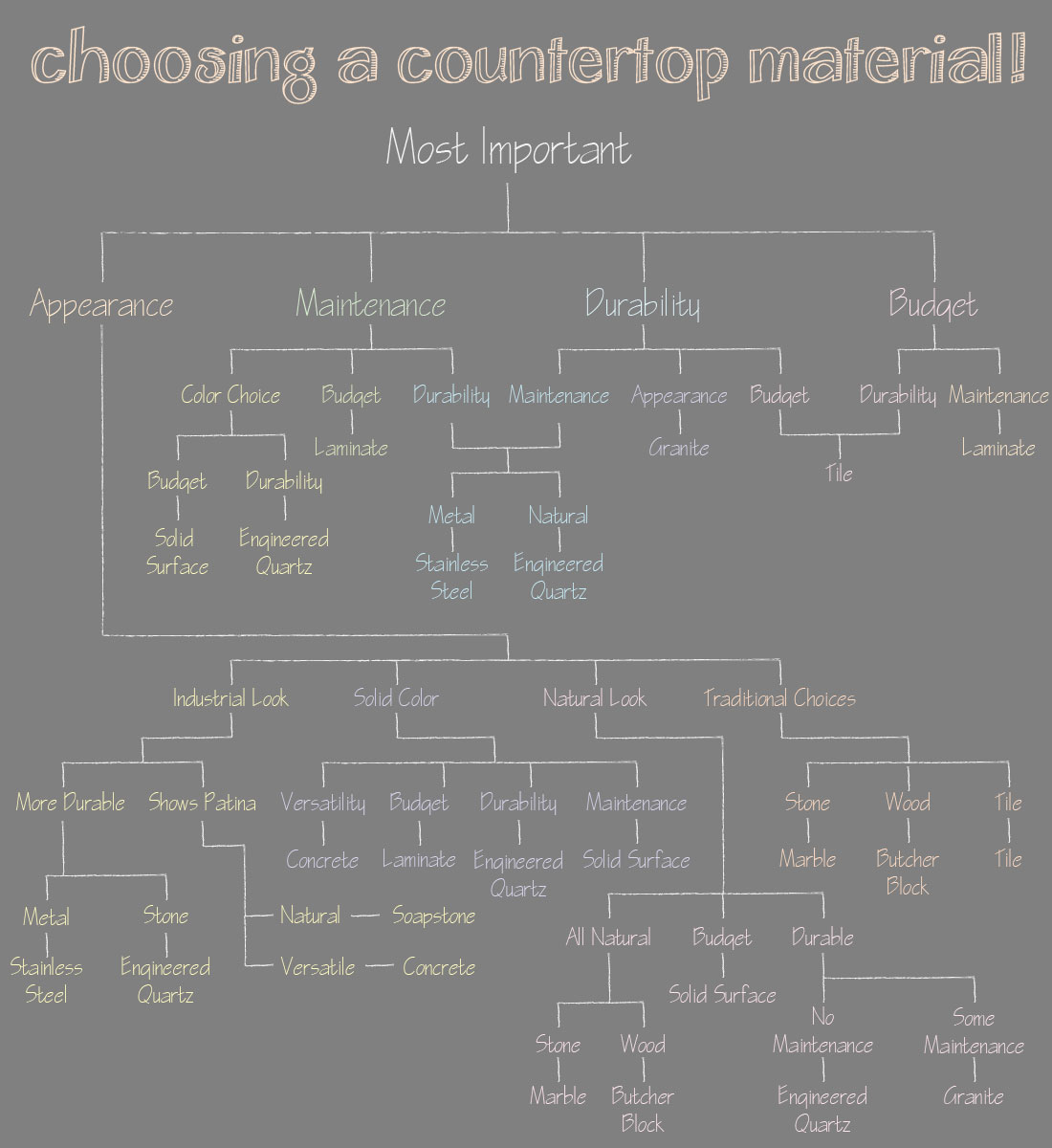
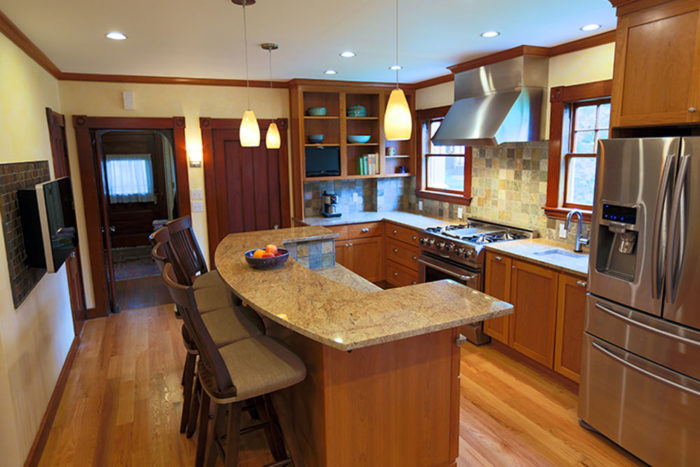
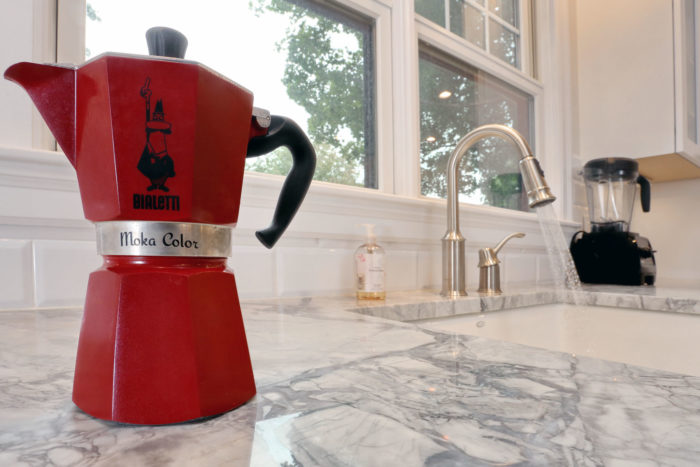
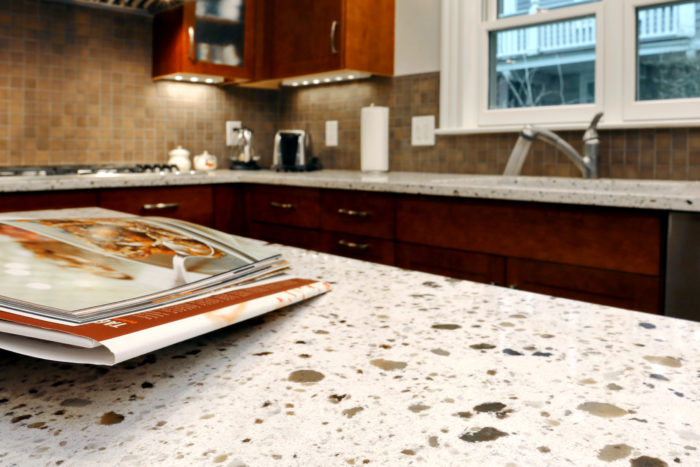
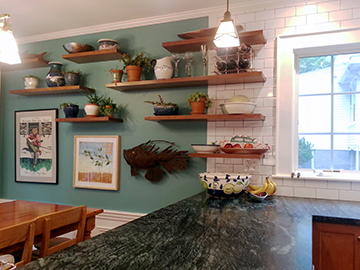
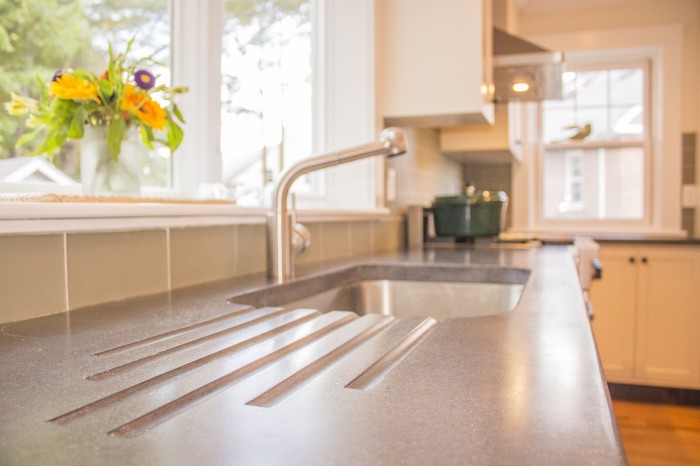
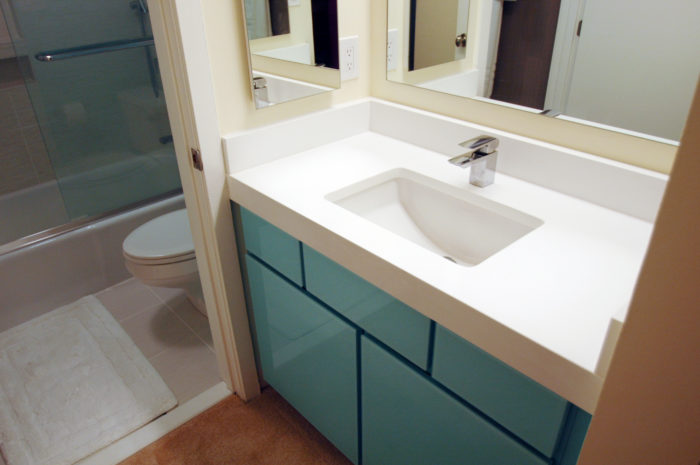
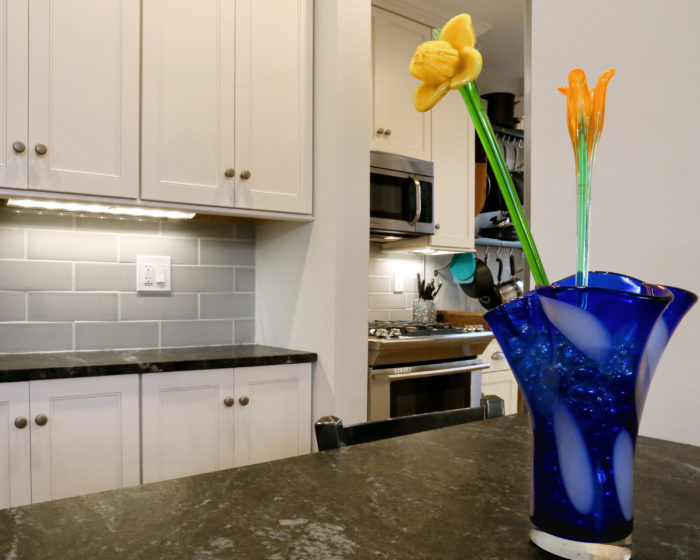

Comments are closed here.